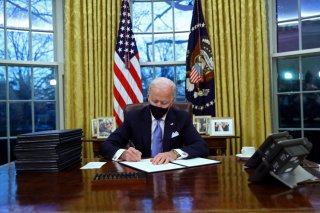Didn’t Get a Stimulus Payment? Tax Day Could Make That Happen.
The IRS website says: “If you didn’t get any payments or got less than the full amounts, you may qualify for the Recovery Rebate Credit and must file a 2020 tax return to claim the credit even if you don’t normally file.”
Here's What You Need to Remember: According to the details of the American Rescue Plan, individuals who earn as much as $75,000 in adjusted gross income, or couples making $150,000, qualify for the full $1,400 per person. But an individual with an income of $80,000, or a couple with $160,000, will not be getting any stimulus check this time around.
The Internal Revenue Service and the Treasury Department may have already sent out a hundred sixty-five million coronavirus stimulus checks for this current third round, but know that there are thousands of cash-strapped Americans who are still sitting empty-handed.
For those individuals who must go on with their daily lives amid this uncertainty, they can take some comfort in knowing that there are options out there that can assist them in their quest to eventually get their hands on the missing or lost stimulus money.
Take note that many Americans have reportedly received a particular confirmation letter—also known as Notice 1444 or Notice 1444-B—from the IRS stating that their stimulus check was issued even though they have yet to receive it.
In this scenario, the affected individuals have the option to request an IRS payment trace. Keep in mind that this action can also be initiated if the IRS “Get My Payment” tool at www.irs.gov/coronavirus/get-my-payment shows that the money has been disbursed but there is no sign of it in the recipient’s bank account.
Another option for concerned individuals is to actually speak to a live human regarding their missing stimulus checks. The IRS Economic Impact Payment phone number is 800-919-9835—but be warned that “IRS live phone assistance is extremely limited at this time,” states the agency’s website. What this means is that inquiring individuals should be prepared to sit on hold for a considerable amount of time.
As for those who are still trying to claim stimulus money from the first two rounds, the IRS has continued to remind taxpayers that for this particular tax season, a Recovery Rebate Credit has been added to all returns.
The IRS website says: “If you didn’t get any payments or got less than the full amounts, you may qualify for the Recovery Rebate Credit and must file a 2020 tax return to claim the credit even if you don’t normally file.”
Moreover, with Tax Day now extended to May 17, the tax agency is urging all individuals to file by that date if they want to claim the money. However, if that can’t be done, know that they can still collect the missing checks by filing by the October 15 tax filing extension deadline. If one chooses this route, be aware that taxpayers are still responsible for interest and penalties that could continue to accrue on any tax owed.
Keep in mind that the IRS has once again reminded all taxpayers that the income levels in this third round of stimulus checks have changed—meaning that there is a chance that some individuals won’t be eligible for this payment even though they received a first or second stimulus check without any issues.
According to the details of the American Rescue Plan, individuals who earn as much as $75,000 in adjusted gross income, or couples making $150,000, qualify for the full $1,400 per person. But an individual with an income of $80,000, or a couple with $160,000, will not be getting any stimulus check this time around.
Ethen Kim Lieser is a Minneapolis-based Science and Tech Editor who has held posts at Google, The Korea Herald, Lincoln Journal Star, AsianWeek, and Arirang TV. Follow or contact him on LinkedIn. This article first appeared earlier this year.
Image: Reuters.

